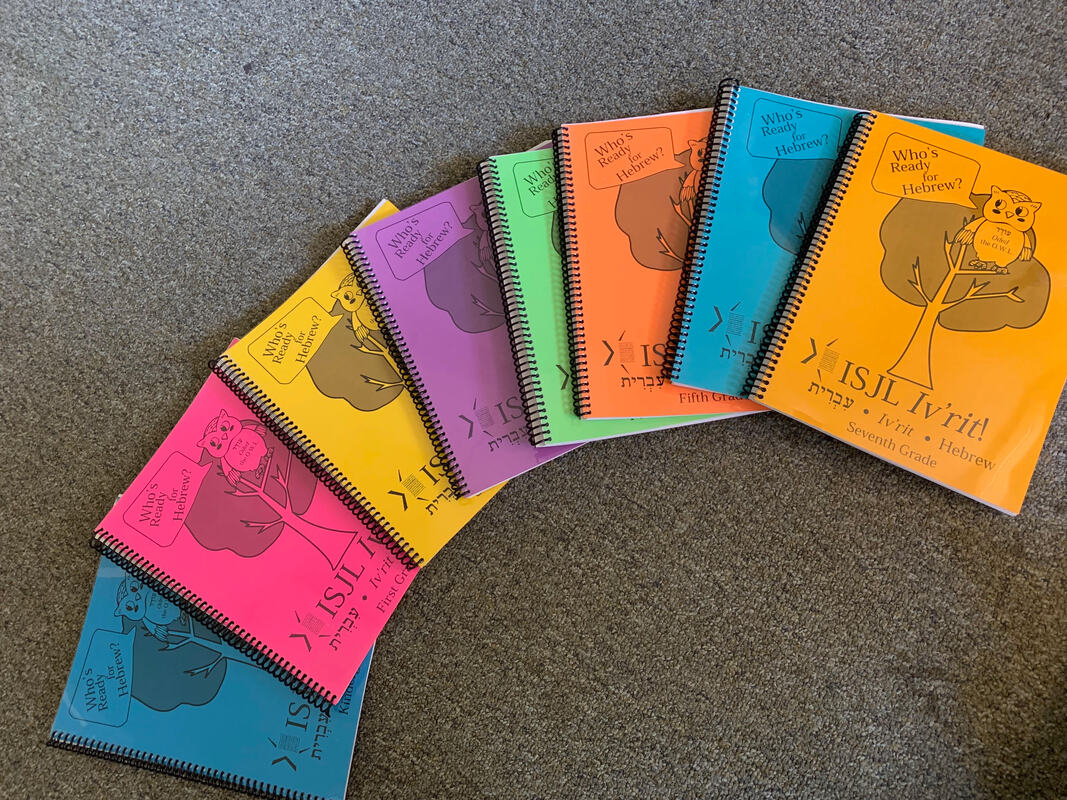Return to Newsletter main page! |
Linguistics of Learning Lashon Kodesh (Holy Language)By Becca Leaman, Gutenstein Family ISJL Education Fellow
When it comes to learning a language, it has been said that “children learn languages more easily than adults[i]”. In the United States, however, public school children do not typically begin learning a second language until middle school. Jews, on the other hand, often start learning Hebrew as young as preschool or kindergarten. Learning Hebrew in religious school is usually framed as being able to decode the prayers (translating written words into sounds) or early preparation for b’nei mitzvah. But, of course, because we are Jews, this raises some questions; is it really helping our students to teach them a new language this early? And, should we be teaching it with these end goals? There have been numerous studies looking into the benefits of learning a second language. These studies show that learning a second language not only increases a person’s creativity, but also increases their overall brain development. Beyond those benefits, learning new languages can often help people to better their native language. When we learn languages, there are often grammatical rules we encounter that make us think in a different way about our own language, or that bring an awareness that we might not have always had. Another reason why learning any language—especially one as unique as Hebrew—is so valuable is that it can help kids if they decide to learn a similar language one day. Part of our culture as Jews is creating life-long learners. We love to ask questions of “why?” Therefore, it is inevitable that our students may wonder why it is so important that they learn Hebrew. While our immediate may be to say the same thing on repeat, “so you’re prepared for your bat mitzvah,” or “so you can follow along during t’filah,” in reality the Hebrew language is part of our culture. Hebrew can be a tool in a person’s Jewish identity development. Hebrew can also be used as a point of connection between communities—both within the United States and around the world. The cool thing about knowing or being able to read Hebrew is that we can go to a synagogue anywhere in the world. While the native language and the tunes may be different, the prayers will be in Hebrew. Getting our students excited and engaged in learning Hebrew can be challenging, but there are a few things that may help. One way to help students engage, which may feel counter intuitive, is modeling a sense of comfort and pride in whatever your Hebrew level may be. Showing students that you are excited about learning Hebrew, even if you are far from an expert, demonstrates that you do not have to retain perfect command of the language in order to learn and connect with it. Additionally, having a measurable goal for students when it comes to learning Hebrew makes it feel less abstract and more attainable. B’hatz’lachah (good luck) in your Hebrew-learning endeavors! [i] Hartshorne, J. K., Tenenbaum, J. B., & Pinker, S. (2018, May 2). A critical period for second language acquisition: Evidence from 2/3 million English speakers. [MD1]FYI- the “b’nei” makes it plural. Mitz’vah stays that way. #HebrewGrammar |
- Home
- WHO WE ARE
-
WHAT WE DO
- PODCAST
- Conference >
- Education >
-
CULTURE
>
- Culture Overview
- Cultural Programming >
-
History
>
-
Encyclopedia of Southern Jewish Communities
>
- Alabama Encyclopedia
- Arkansas Encyclopedia
- Georgia Encyclopedia
- Florida Encyclopedia
- Kentucky Encyclopedia
- Louisiana Encyclopedia
- Mississippi Encyclopedia
- North Carolina Encyclopedia
- Oklahoma Encyclopedia
- South Carolina Encyclopedia
- Tennessee Encyclopedia
- Texas Encyclopedia
- Virginia Encyclopedia
- Encyclopedia Credits
- Oral History
-
Encyclopedia of Southern Jewish Communities
>
- SPIRITUALITY >
- DONATE
- Shalom Y'all
- Strategic Plan
- Southern & Jewish Blog
- Calendar
- Virtual Press Kit
|
©2024 Goldring/Woldenberg Institute of Southern Jewish Life
|

